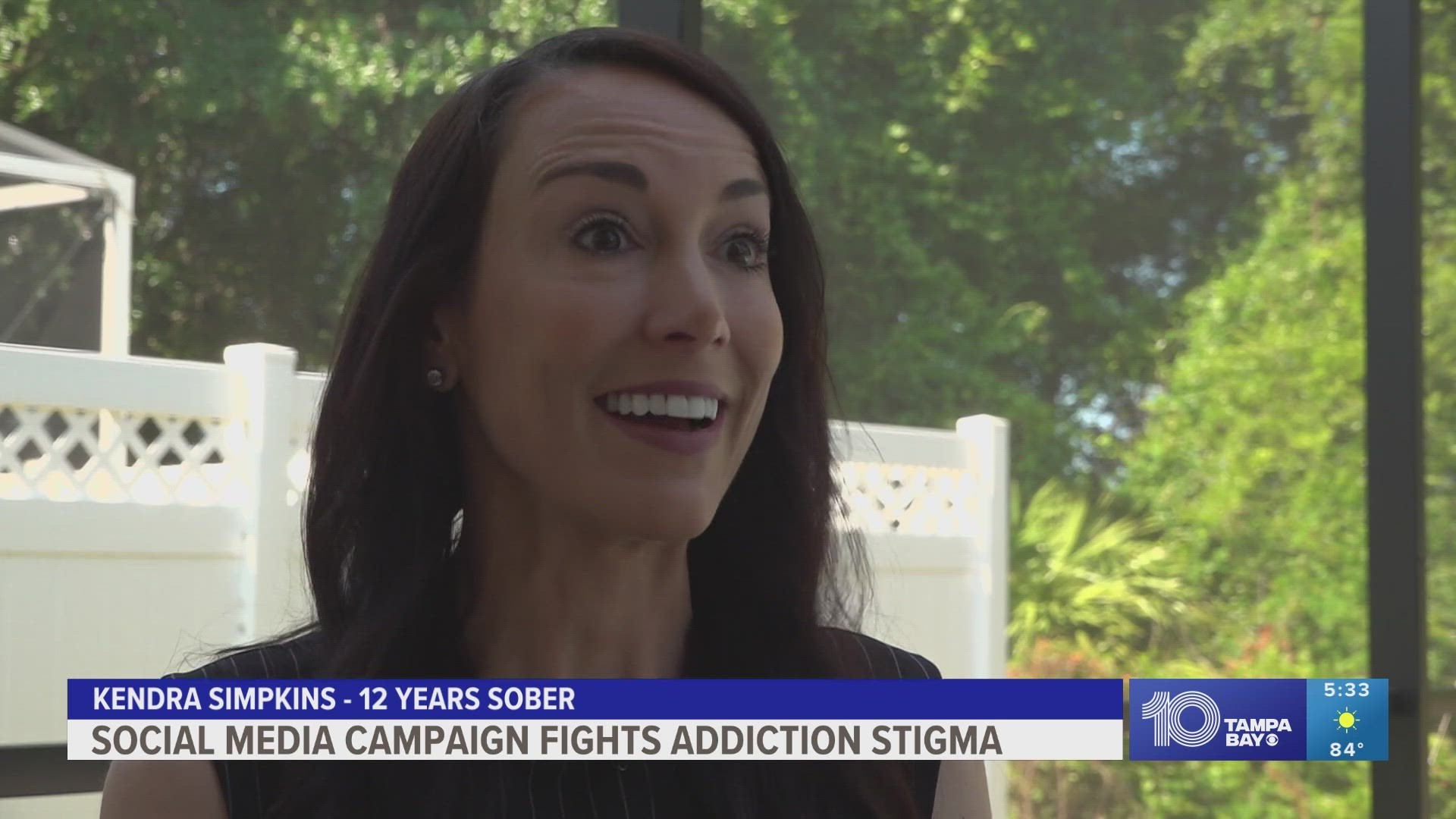TAMPA, Fla. — Sharing stories, stamping out stigma and saving lives: That's the goal of a new social media campaign just launched by non-profit Live Tampa Bay, an organization that works to fight the opioid epidemic.
Its goal is to get messaging to people where they're already at — scrolling online. Moreover, through personal stories, it emphasizes that addiction struggles are not unique, and can be overcome with support.
The stories shared on their website, Instagram page and TikTok page are roughly a minute long, with people connected to the Tampa Bay region sharing their journies through addiction and recovery.
Live Tampa Bay Anti-Stigma Program Director Sean Daniels explained, "So the idea is, you know, it's four in the morning, you're struggling, you don't know what to do, and you see a story of someone that looks like you telling you that recovery is possible."
Daniels said they're working with an algorithm to specifically target people in areas where the messaging is needed the most.
"We looked at where the overdose deaths were, and all the zip codes in the areas, and then we're really trying to focus on places where it's the highest, where we feel like we can make the most change," Daniels said.
According to Live Tampa Bay, nearly three people die every day in the Tampa Bay region from drug overdoses.
Casey Murphy and Kendra Simpkins, who both live in Sarasota, were both moved to share their stories as part of the anti-stigma campaign.
Murphy said, "I think the more that we can talk about it frankly and openly, it's helpful to people to, to even acknowledge to themselves, like, oh, I may have an issue."
Simpkins said, "Oftentimes, when we're in our addiction, we can feel like, 'Wow, I'm the only one that's struggling with this and nobody would understand what I'm going through.' So when you find out, oh, there are other people out there, and there's a lot of other people who are dealing with the same thing that I'm dealing with, and that I am not alone and that we can support one another."
Live Tampa Bay said they've collected more than 100 videos from people in recovery and plan to release them periodically over social media in the coming weeks.
If you'd like to contribute your own story, they're still collecting them: to upload your own video, click here.

